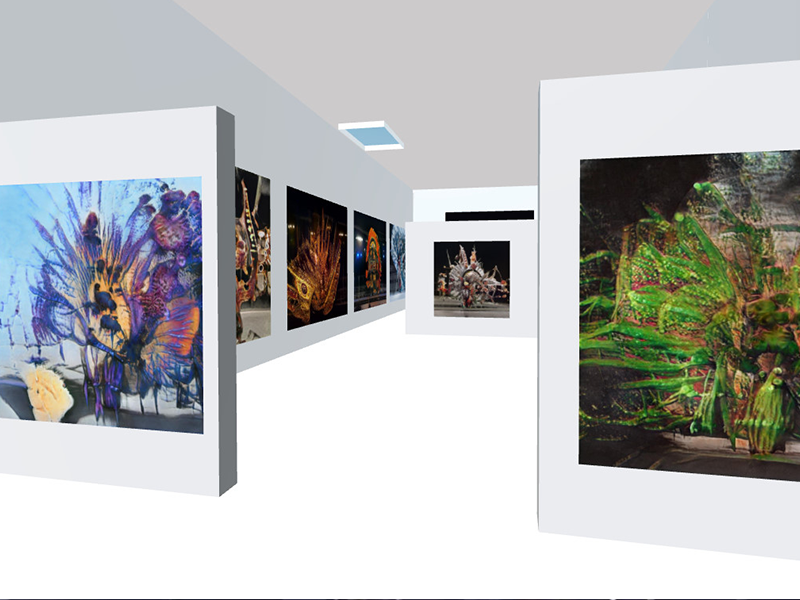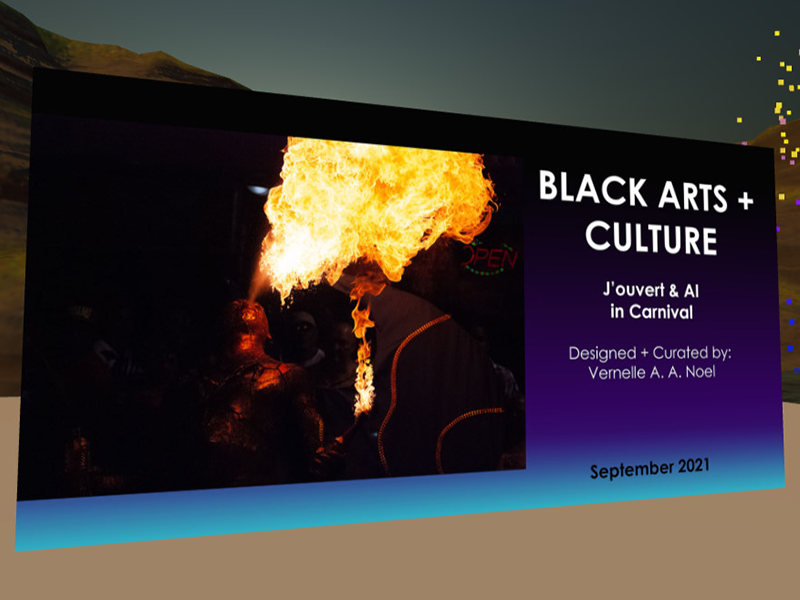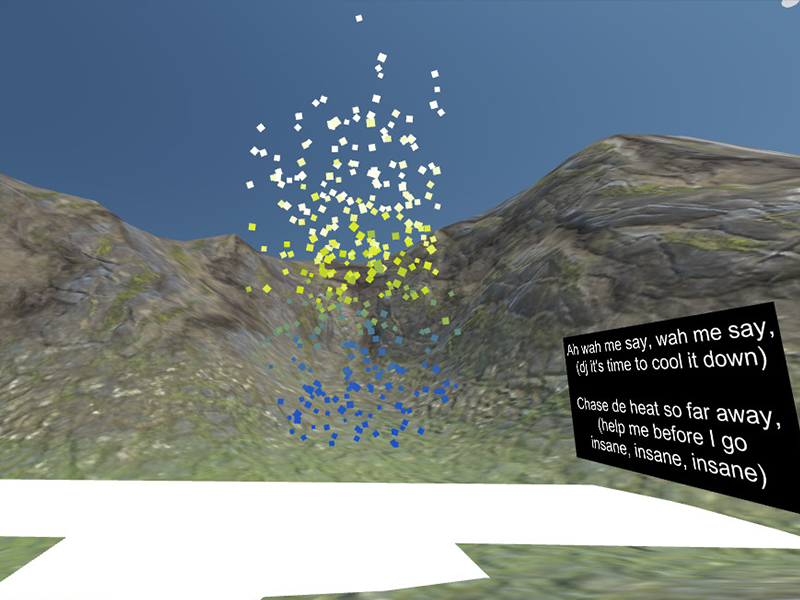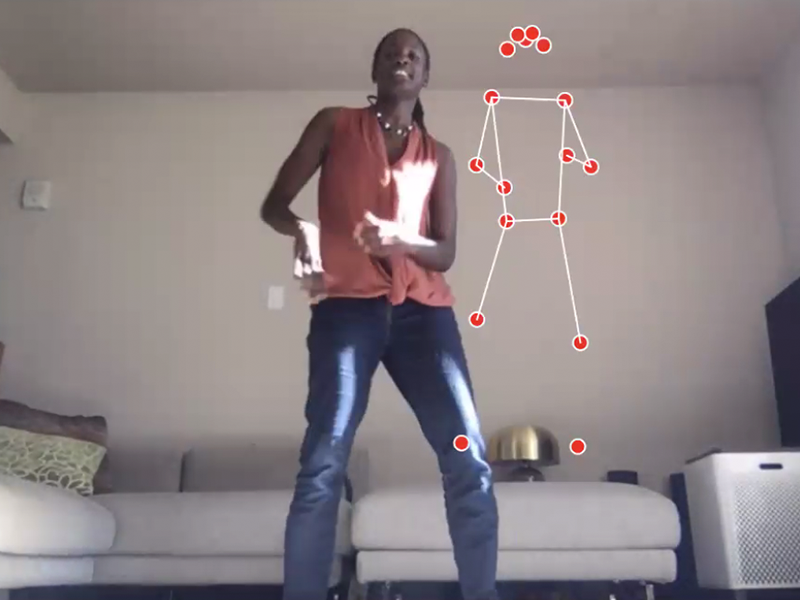Vernelle A. A. Noel Launches Project to Showcase How AI Can Extend Black Creativity and Joy
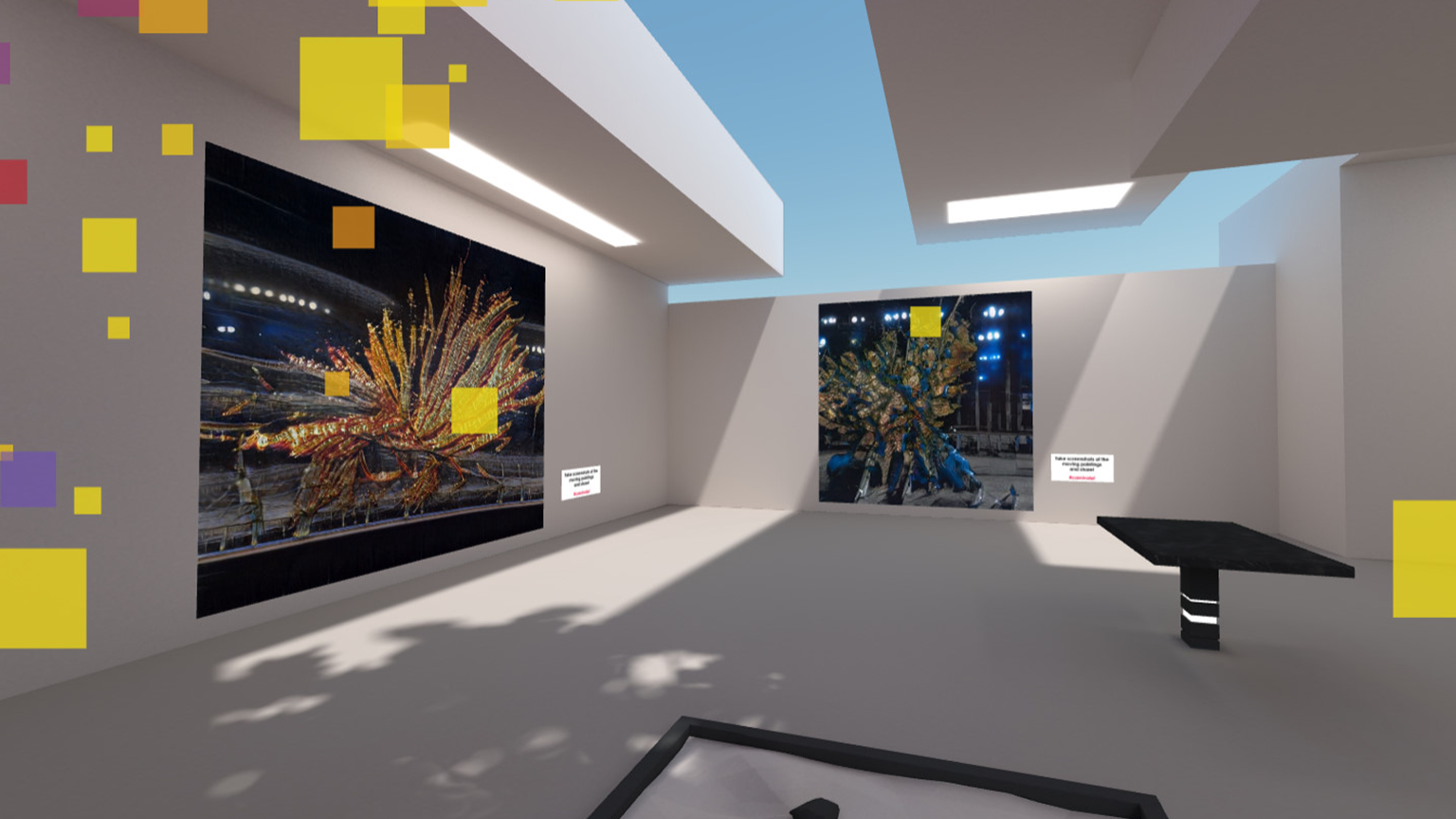
September 10, 2021
After slavery in Trinidad was abolished in 1834, formerly enslaved Africans reinvented the Carnival as a form of resistance against oppression and a celebration of their freedom, creativity, and joy.
Vernelle A. A. Noel, assistant professor for the Georgia Tech School of Architecture, teamed with other Caribbean and Black female artists to show that AI, which has become another source of oppression for historically marginalized communities, can also be harnessed to extend joy and creativity.
Funded through Mozilla’s Creative Media Awards, “Artificial Intelligence + Carnival + Creativity” celebrates Carnival while engaging Caribbean and Black communities in discourses about AI, its benefits, and harms. Using Carnival as a vehicle, the project creates a space where Caribbean and Black communities can engage with, learn about, and interrogate AI to benefit themselves.
The project brings together AI, architecture, digital heritage, and art to create and feature AI-generated dancing sculptures, AI-generated Blue-Devils and Jab Jabs in the Carnival, and an app for visitors to create visual art through their own body’s movement and dance.
Noel's colleagues in the Georgia Tech School of Architecture are excited to engage with the project.
"The virtual gallery, mas, and j'ouvert are inviting, exciting, and jocund platforms," said assistant professor Danielle Willkens. "They provide such unique ways to interact with not only the work, but also other online participants. It is easy to imagine how this launch truly initiates news ways to explore, create, and connect, facilitating new forms of agency."
Noel’s collaborators on the project are Dr. Nettrice Gaskins, an African American digital artist whose work explores Afrofuturism and techno-vernacular creativity, and Valencia James, a Barbadian performer and researcher whose work focuses on the intersection between dance, theatre, technology, and activism.
The project is launching at a time when most Carnival celebrations worldwide have been cancelled due to the pandemic. This includes carnivals in the Caribbean, as well as London’s Notting Hill Carnival and New York City’s West Indian Day Parade.
“AI systems are powerful, and we and our data are implicated in their development and applications, including targeted engagement, surveillance, and healthcare,” said Noel. “Most importantly, historically excluded groups are continually left out when it comes to the design and development of these systems.”
Noel added: “This project seeks to change that by sharing with Caribbean and Black AI diaspora about data, AI, its implications, politics, and creative applications. Caribbean communities have agency, can be part of global discourses on AI, can use their data creatively — and can be critical of how their data are collected and used.”
Visitors can share their experiences on social media by tagging @carnivalandai in their photos with hashtags that include: #carnivalai #carnivalandai #aicarnival
Five Separate Experiences
Mozilla Creative Media Awards
The Creative Media Awards are part of Mozilla’s mission to realize more trustworthy AI. The awards fuel the people and projects on the front lines of the internet health movement — from researchers in Uganda to filmmakers in the U.S.
The latest cohort of awardees are all Black artists who spotlight how AI can reinforce — or disrupt — systems of oppression. The AI systems in our everyday lives can perpetuate and amplify biases that have long existed offline: Recommendation algorithms promote racist messages. Facial recognition systems misidentify Black faces. And voice assistants like Alexa and Siri struggle to understand Black voices. As AI in consumer technology grows more sophisticated and prevalent, problems like these will grow even more complex.
